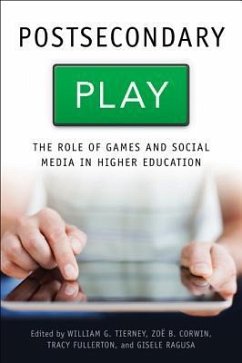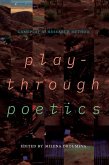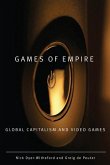The college application process--which entails multiple forms, essays, test scores, and deadlines--can be intimidating. For students without substantial school and family support, the complexity of this process can become a barrier to access. William G. Tierney, Tracy Fullerton, and their teams at the University of Southern California approach this challenge innovatively. Using the tools of online games and social media, they have developed ways to make applying for college much less intimidating. While the vast majority of college students use social media and gaming in their everyday lives, colleges and universities have been slow to recognize and harness the power of either. Postsecondary Play explores the significance of games and social media in higher education, and particularly how they can be used to attract, retain, educate, and socialize students. Tierney, a past president of the American Educational Research Association, has gathered some of the best research on the emerging role of games and social media in the classroom and how these tools can boost student confidence and increase college access. Scholars writing from a wide variety of disciplines--college access, social media, game studies, and learning sciences--provide concrete examples to illustrate the new and complex ways in which students learn in response to social media and games. Tierney and the contributors find that, although games can be powerful tools for encouraging underserved students, quality game design and mastering the concept of play--the ability to develop skills while engaging in the game--are essential in the effective use of serious games in teaching and learning. Summarizing a decade of research in game design and learning, Postsecondary Play will appeal to higher education scholars and students of learning, online gaming, education, and the media. "A worthwhile addition to the dynamic body of knowledge through the scholarship of teaching and learning. Its key arguments cross geographic borders, and the key themes are timeless."--Canadian Journal of Higher Education "Summons a chorus of experts and articulates their varied and informative perspectives through clearly written and well-organized essays. Those hoping to understand better the state of higher education and the role that games and social media will play in its development should certainly read this book."--American Journal of Play "Recommended for educators and the technology community."--Library Journal William G. Tierney is the Wilbur Kieffer Professor of Higher Education and co-director of the Pullias Center for Higher Education at the University of Southern California. Zoë B. Corwin is an associate professor of research at the Pullias Center. Tracy Fullerton is the director of the Game Innovation Lab at USC. Gisele Ragusa is the director of USC's STEM Consortium.
Bitte wählen Sie Ihr Anliegen aus.
Rechnungen
Retourenschein anfordern
Bestellstatus
Storno








